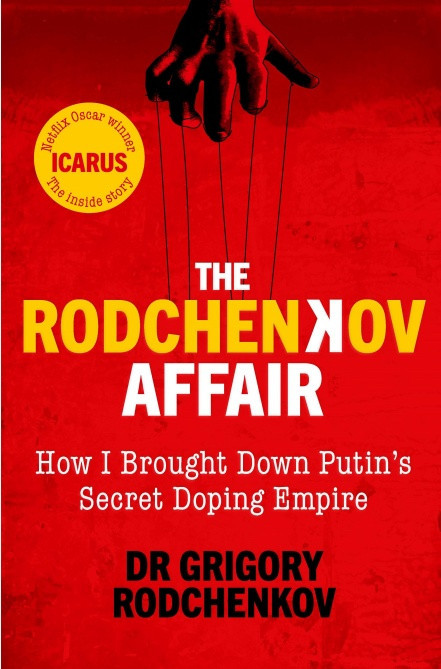Grigory Rodchenkov is to publish his autobiography this week, with the book expected to give unprecedented insight into the Russian doping scandal.
Rodchenkov was the former head of the Moscow Anti-doping Laboratory.
In 2015, he fled to the United States and turned whistleblower, providing much of the evidence against Russian athletes accused of engaging in doping at the 2014 Winter Olympics in Sochi.
His autobiography, entitled The Rodchenkov Affair - How I Brought Down Putin's Secret Doping Empire, is to be released on Thursday (July 30).
Rodchenkov's story has already partially featured in the award-winning Netflix documentary Icarus.
The book will offer more insight into Rodchenkov's life, describing his childhood in the Soviet Union, his first encounter with doping as a 22-year-old student-athlete at Moscow State University, and his subsequent career working for the Soviet Olympic Committee.
Extracts of the book have also been published in the Mail on Sunday, with Rodchenkov detailing how his team swapped contaminated samples for clean samples during Sochi 2014.
"I missed the Closing Ceremony because we had our last important urine bottle swapping session - to protect two Russian gold medals," he wrote.
"They included flag bearer Alexander Zubkov's, who again sat next to Vladimir Putin.
"Our team held our own 'closing ceremony' when we sealed the last tampered doping bottle.
"We had pulled off the greatest fraud in Olympic history."
Rodchenkov also described the praise he received from the World Anti-Doping Agency (WADA) and the International Olympic Committee (IOC) after the Games.
"The IOC eventually announced eight positives during the last five days of the Games and at an official dinner, a group of high-level IOC and WADA dignitaries called us the best Olympic laboratory ever," he said.
"If they only knew…"
Zubkov triumphed in the two- and four-man bobsleigh events at Sochi 2014, but was found guilty of doping offences and stripped of his medals in November 2017.
The book is being released as the Rodchenkov Act is being considered in the United States.
It gives the US jurisdiction over international doping cases - something that WADA and the IOC have repeatedly flagged as not being acceptable.
The measure calls for fines of up to $1 million (£800,000/€900,000) and prison sentences of up to 10 years for those who participate in schemes designed to influence international sports competitions through doping.
Individual athletes who get caught doping would not be subject to punishment under the law.
The consequences of the Russian doping scandal are still ongoing, with the Russian Anti-Doping Agency (RUSADA) currently deemed non-compliant by WADA.
RUSADA was first declared non-compliant in 2015, reinstated, and then sanctioned again in 2019 after alleging that doping data received from the Moscow Laboratory had been manipulated.
Among the sanctions WADA has imposed on RUSADA is a four-year ban on the Russian flag flying at the Olympic Games or any World Championships, with the case currently being appealed at the Court of Arbitration for Sport.

